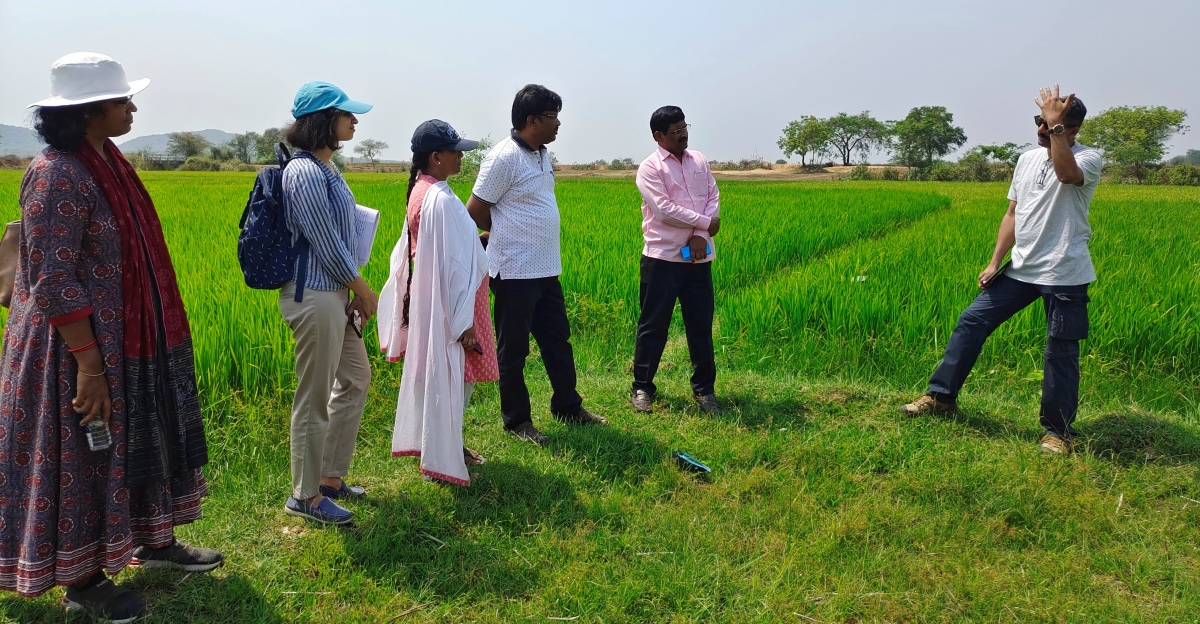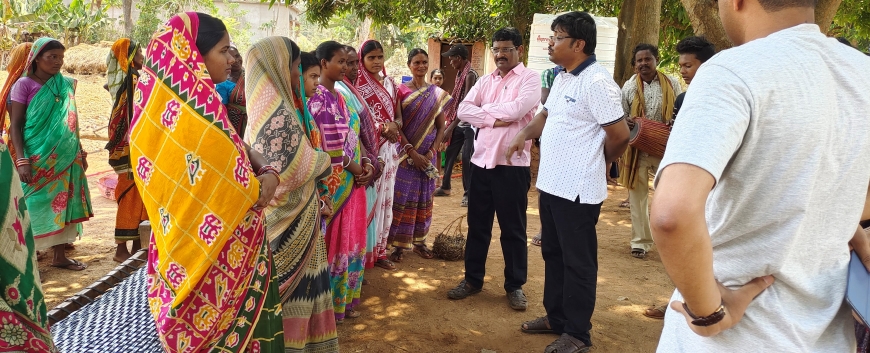FOLU team visited to RESILIENCE project site at Cuttack, Odisha
The Food and Land Use Coalition (FOLU) and RESILIENCE projects team members continued the interactions on 19th April 2022 at the Cuttack field site. The team interacted with the men and women farmers, scientists of the National Rice Research Institute (NRRI) and developmental researchers of the M.S.Swaminathan Research Foundation at Badakusunpur and Abhayapur villages in Cuttack district. The NRRI team explained how technological inputs are facilitated to enhance the resilience capacity of the men and women farmers.
The adaptation technologies have largely promoted focusing on the production phase for higher productivity of the cropping systems. Paddy based cropping system is commonly adopted in the region, wherein paddy is cultivated in the Kharif season and Rabi and summer seasons depending on the water availability vegetables in the upland and paddy in the lowlands are cultivated. The farm income and productivity are highly constrained by the lack of suitable paddy varieties to tolerate climate stress, access to quality seeds, less cropping intensity and diversification of crops, crop establishment methods, and nutrient management. To overcome these challenges NRRI has tested and demonstrated diverse technologies to improve farmers’ adaptive capacity.
The important technologies demonstrated are the introduction of varieties tolerant to seasonal flooding and drought, promoting the availability of seeds of such introduced variety by promoting farmer-centric seed systems with production to seed sharing among them, increasing the nitrogen use efficiency by introducing a mobile app as well as leaf colour chart along with soil testing based fertilizer application, alternate wetting and drying for irrigation management, transplanting vs direct sowing, machine transplanting vs conventional manual transplanting, System of Rice Intensification methods of paddy cultivation diversification of crops in the upland with vegetables namely bhendi, tomato, chillies, sunflower, green leafy vegetables, brinjal etc, poly mulch technology for vegetable cultivation, irrigation based on the sensor-based monitoring, green manuring and vermi compost for enhancing soil organic matter, diversification of enterprises by introducing backyard duckery and poultry. Such science-based inputs support farmers in learning and practicing adaptation technologies to the changing climate and market situations. The real challenges are developing backward and forward linkages when the new crops and cropping systems are promoted in these vulnerable areas.
Besides, the NRRI team has assessed GHG emissions of different production systems and fertilizer management practices to understand its potential in reducing the emissions. The team is interested to know the outcomes of such experiments and discussed how it can be used as a potential technology to develop a sustainable agricultural tool toolbox published papers will be shared by NRRI with the FOLU team.


